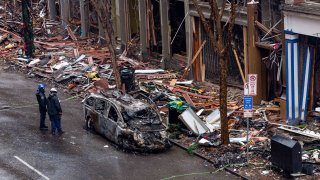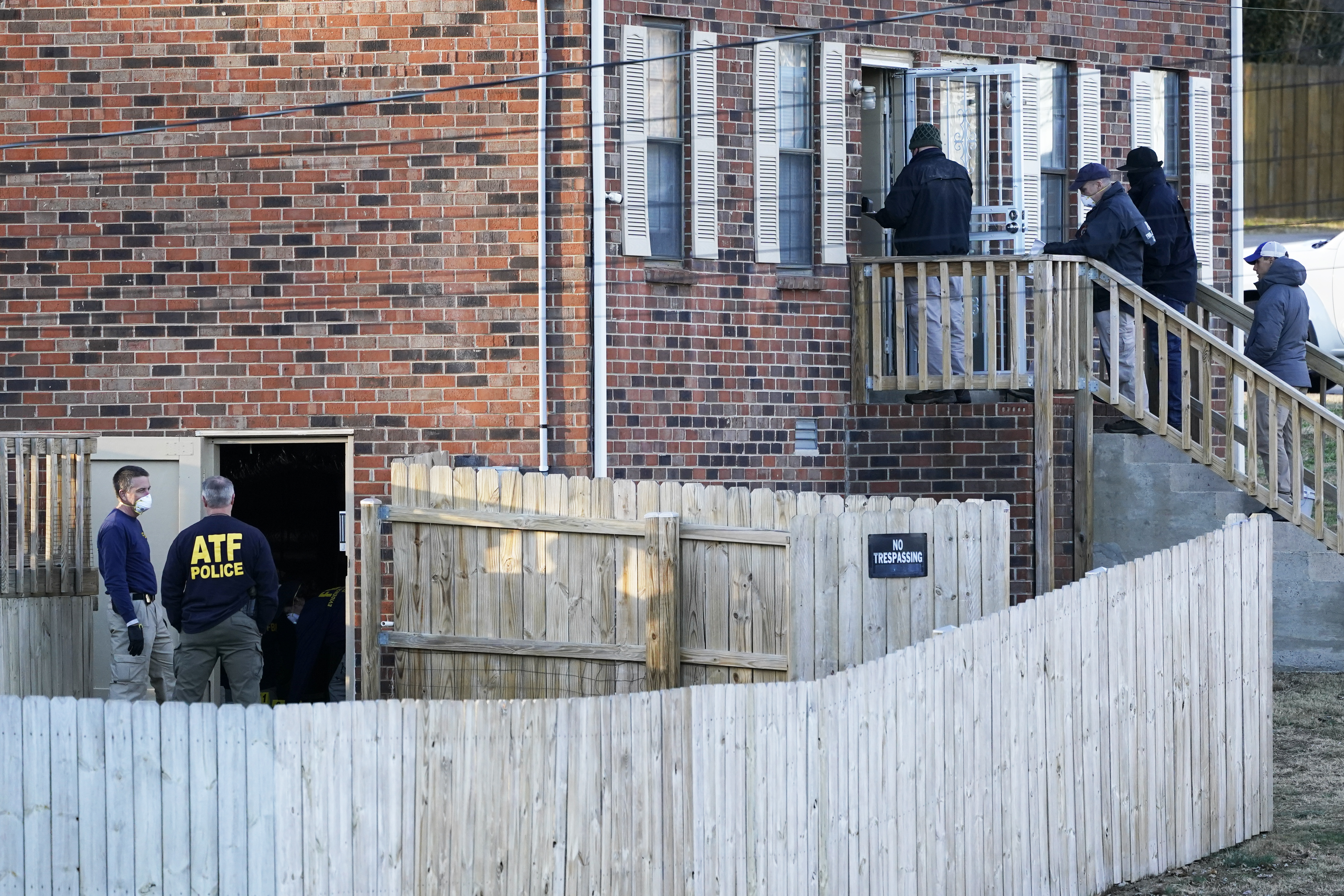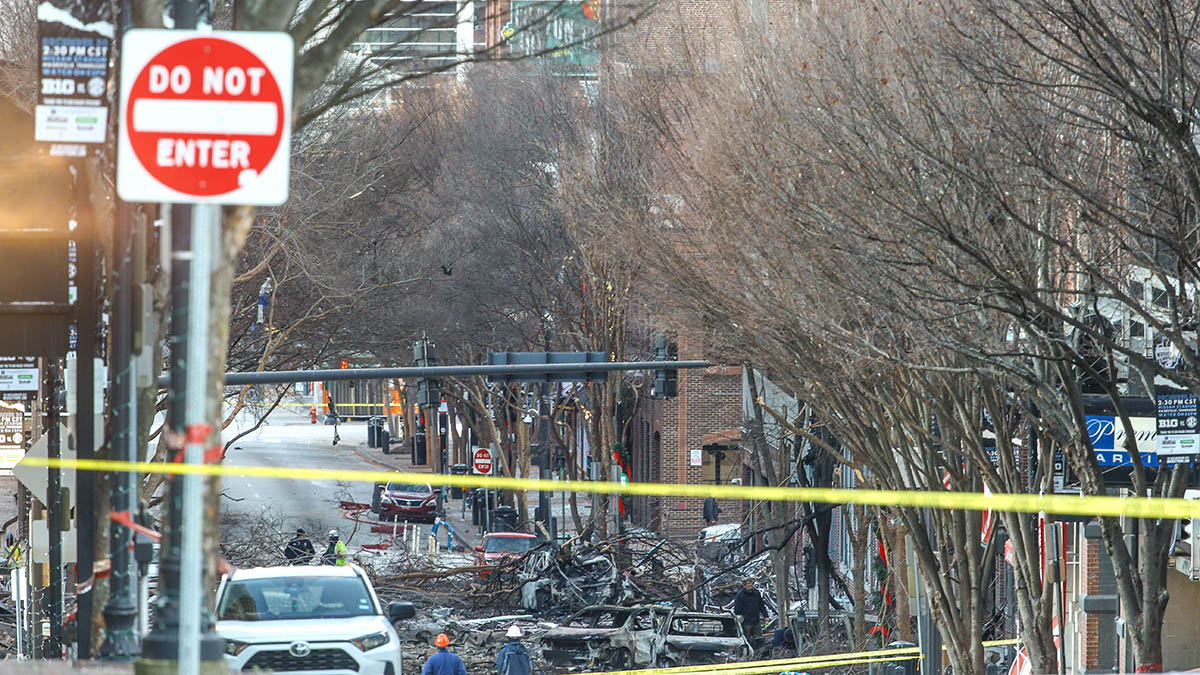
The man who blew himself up inside his recreational vehicle in a Christmas Day bombing in Nashville was grappling with paranoia and eccentric conspiracy theories, but there are no indications he was motivated by social or political ideology, the FBI said Monday in closing out the investigation into the blast.
The FBI statement sets out to resolve some of the lingering mysteries of an explosion that initially perplexed investigators and the public because it appeared to lack an obvious motive or fit a clear profile. Though the blast damaged dozens of buildings, it took place early on a holiday morning well before downtown streets would be bustling with activity and was preceded by a recorded announcement warning anyone in the area that a bomb would soon detonate.
The FBI concluded that the bomber, Anthony Quinn Warner, chose the location and timing so that it would be impactful while still minimizing the likelihood of “undue injury.”
Get a weekly recap of the latest San Francisco Bay Area housing news. Sign up for NBC Bay Area’s Housing Deconstructed newsletter.
The report found that Warner acted alone and set off the bomb to end his own life, driven in part by his longtime beliefs in several conspiracy theories and paranoia. The report also found that stressors included “deteriorating interpersonal relationships.”
“The FBI’s analysis did not reveal indications of a broader ideological motive to use violence to bring about social or political change, nor does it reveal indications of a specific personal grievance focused on individuals or entities in and around the location of the explosion,” the FBI said.
Nashville Bombing
Investigators who received hundreds of tips and leads quickly settled on Warner as the man responsible, identifying him through DNA recovered from the blast site. They concluded early on that he had acted alone.
Despite online speculation that Warner may have been motivated by conspiracy theories about 5G technology, given the proximity of the explosion to an AT&T building and the resulting havoc to cellphone service in the area, the FBI statement gives no indication that that is the case.
Law enforcement actions received scrutiny in the days after the bombing when it was revealed that Nashville police in 2019 had visited Warner's home after his girlfriend reported that he was building bombs in a recreational vehicle at his residence. But the police did not make contact with him or see inside his RV.
Even if Warner didn't leave behind a clear motive, he did take steps in the weeks leading up to the bombing that suggested he didn't expect to survive. For instance, he gave away his car, telling the recipient that he had cancer, and signed a document that transferred his home in a longtime Nashville suburb to a California woman for nothing in return. He told an employer he was retiring.
A neighbor who made small talk with Warner about the upcoming Christmas holiday later recalled to The Associated Press that Warner said something to the effect of, “Oh, yeah, Nashville and the world is never going to forget me.”



